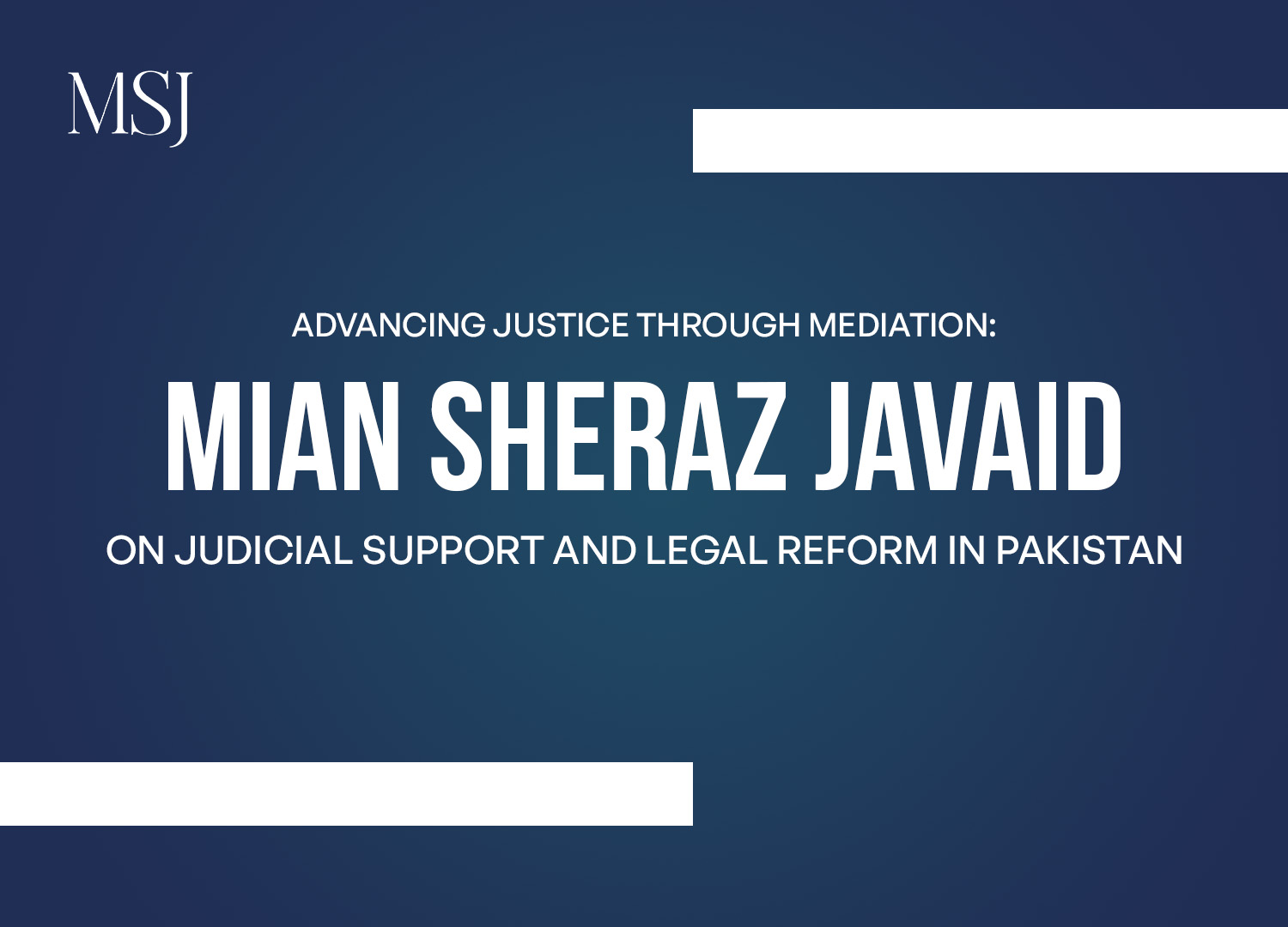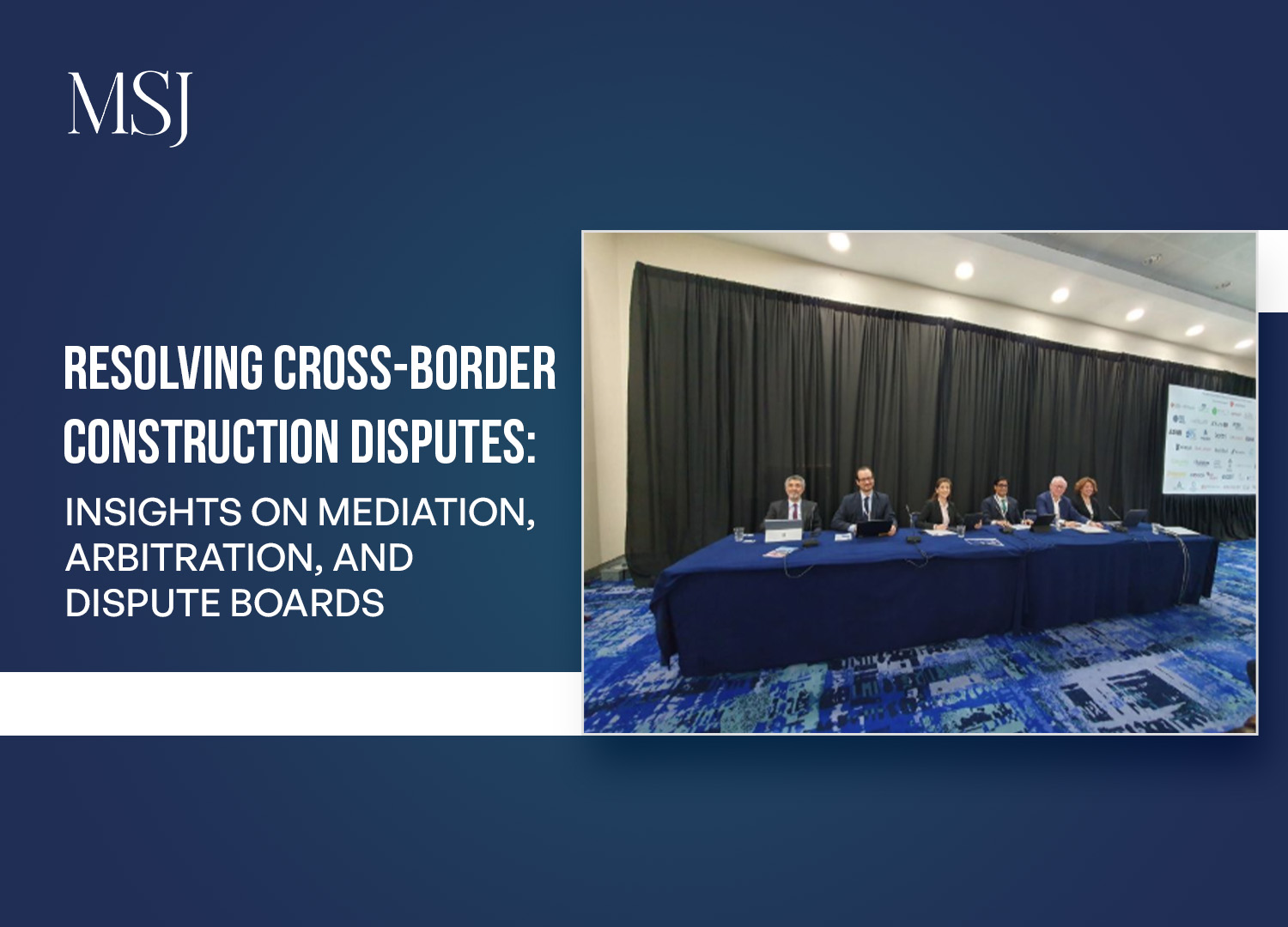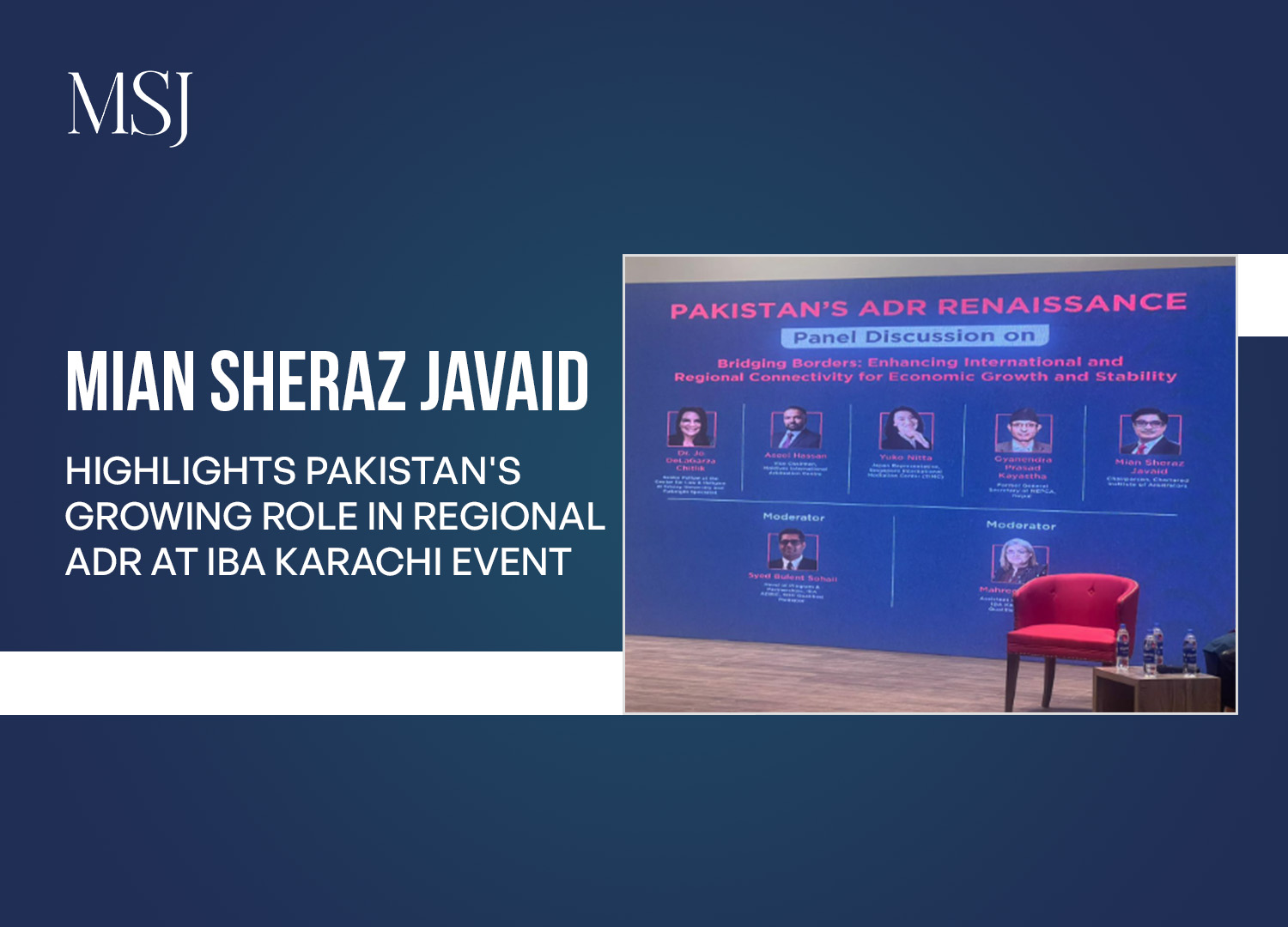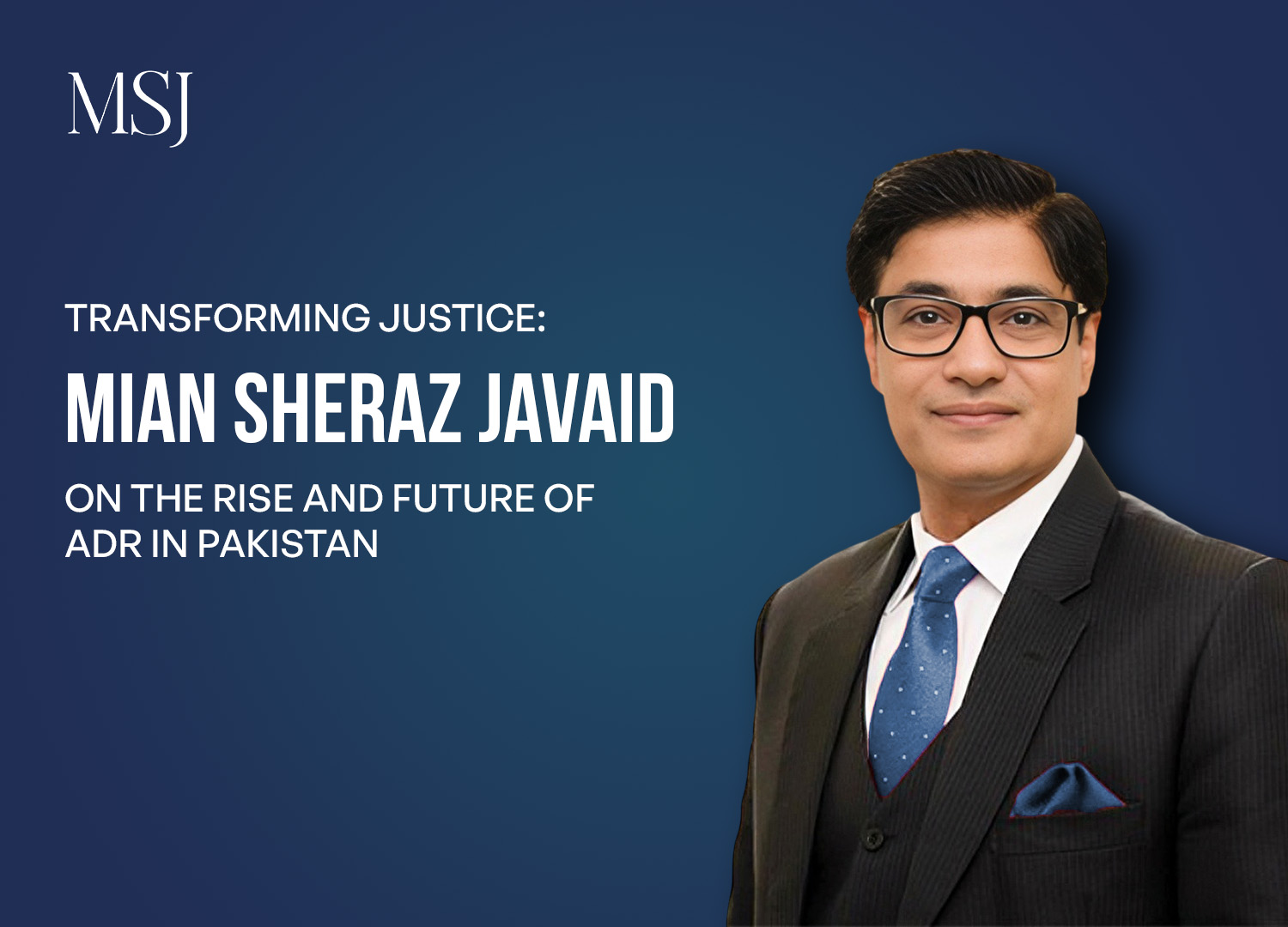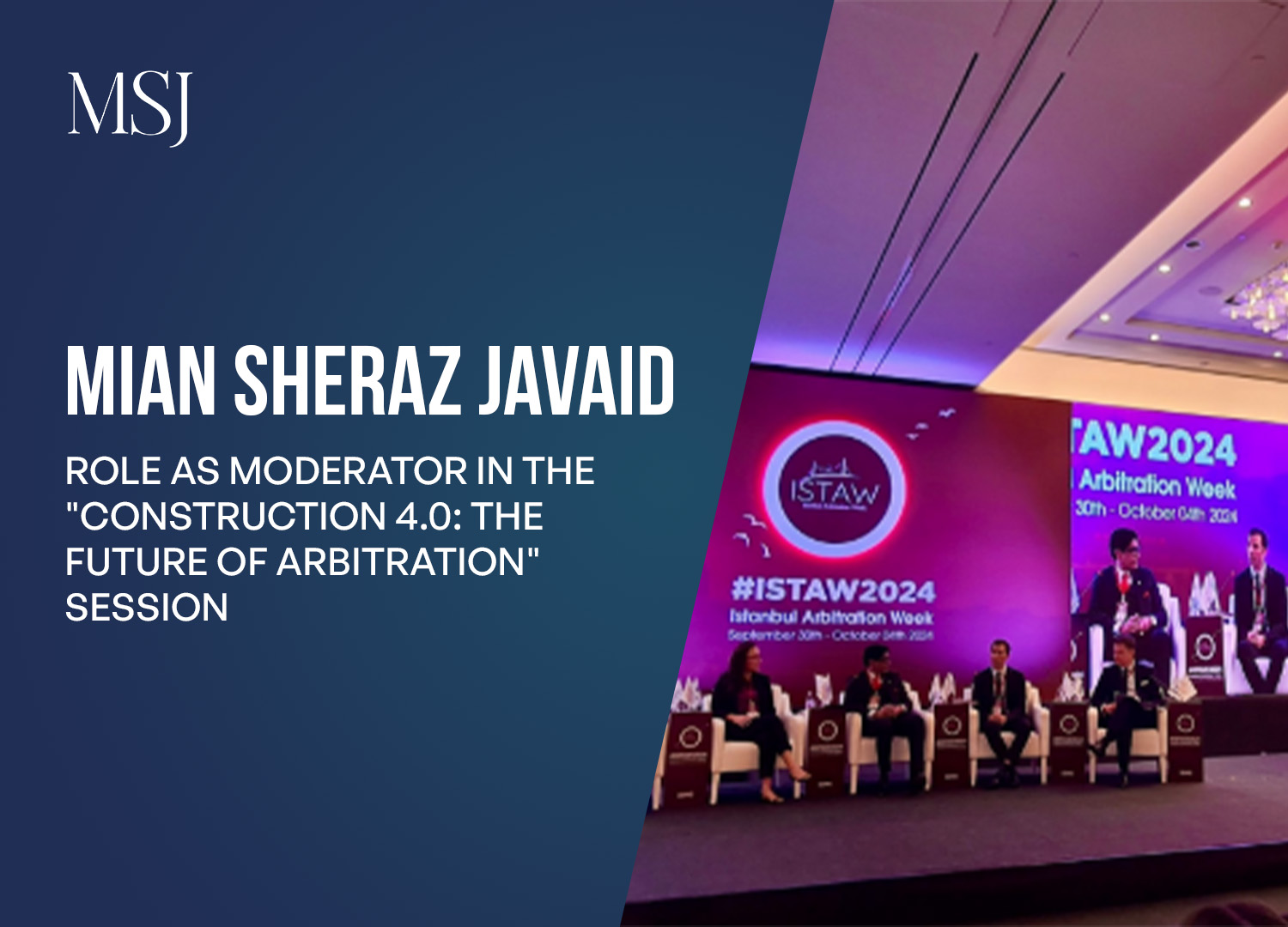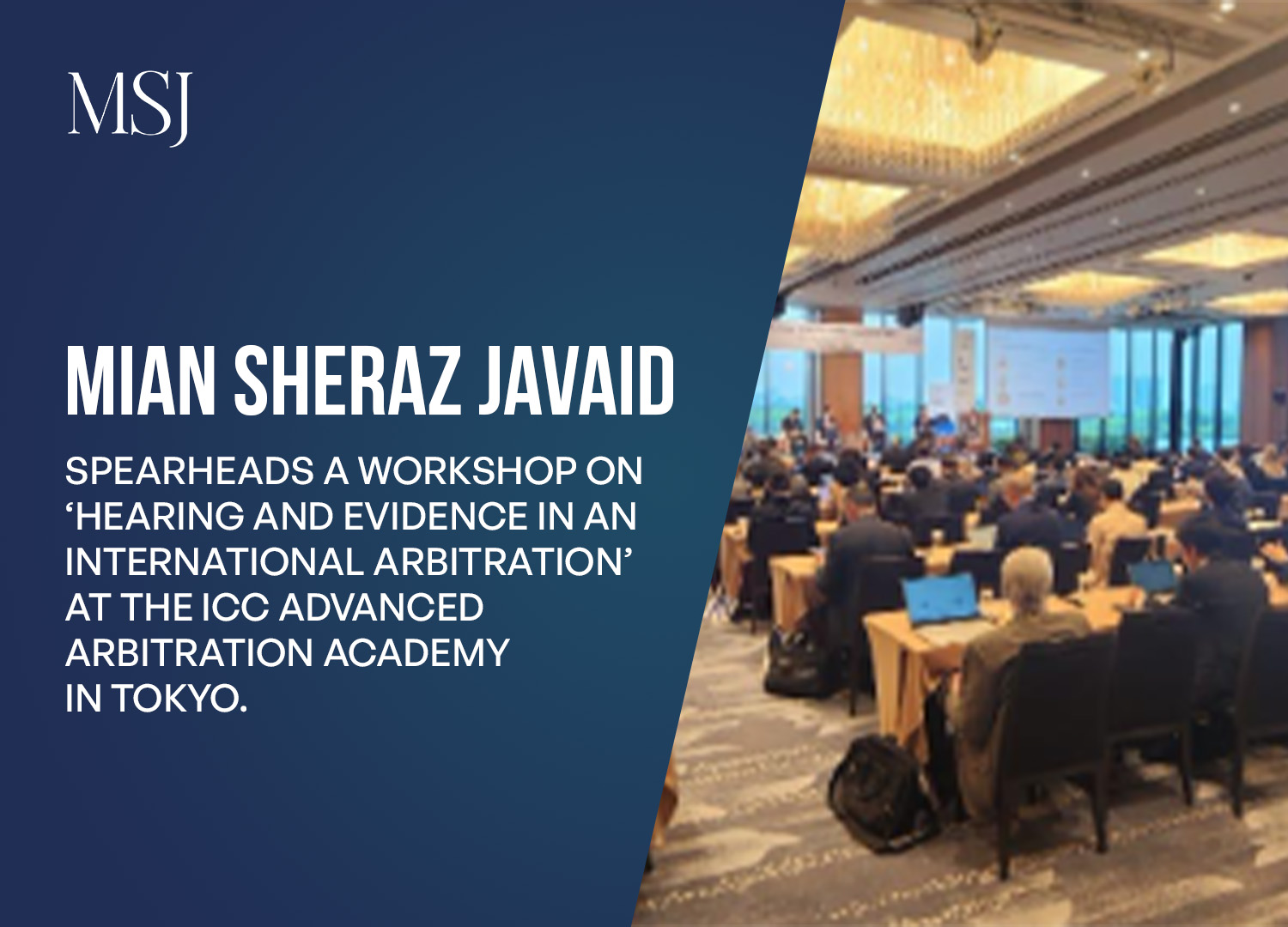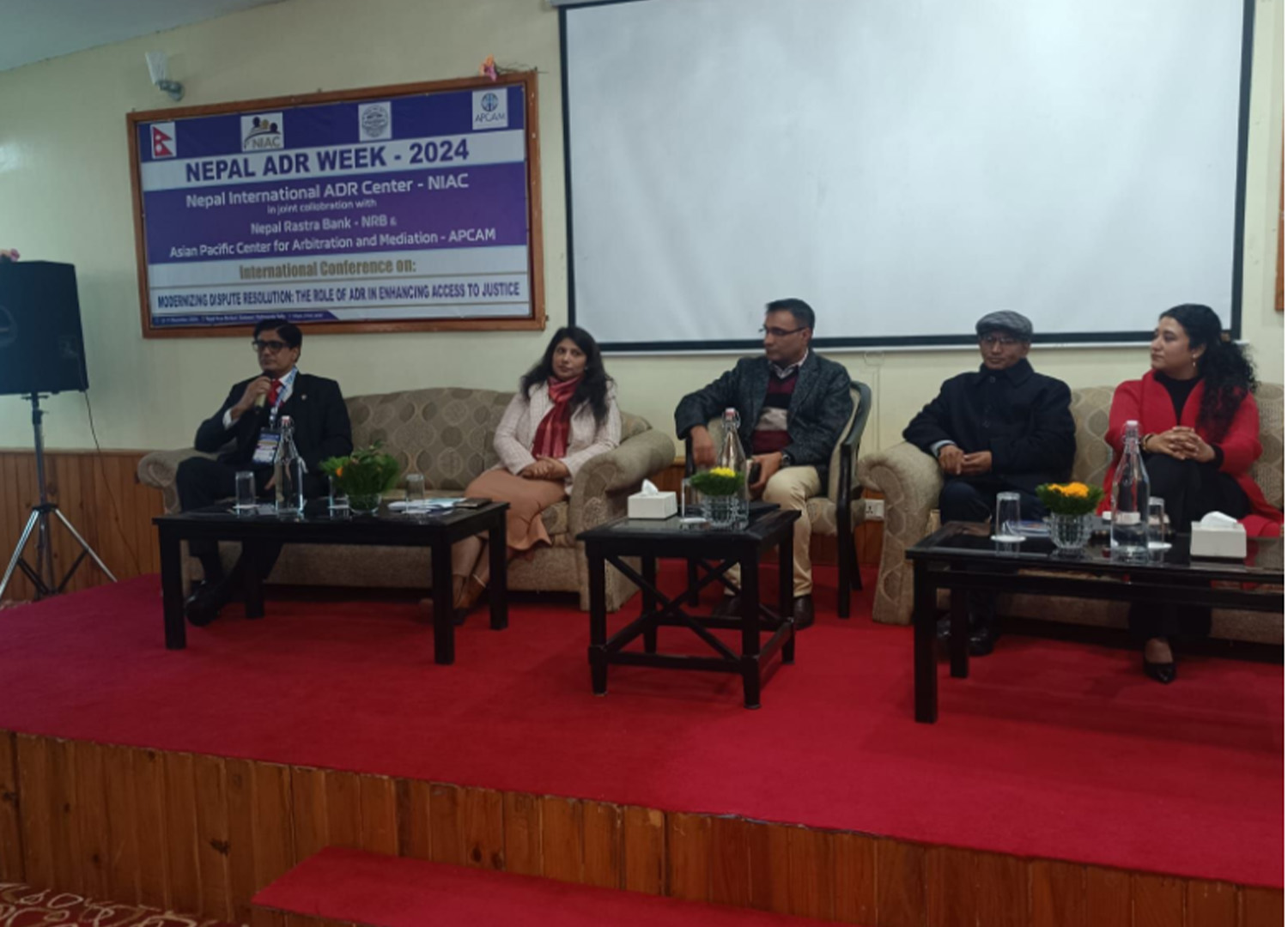Mediation & Nation-Building – Insights from the Australian Dispute Resolution Association (ADRA) 2024
INTRODUCTION
Reflecting on a presentation that broadened his understanding of mediation as a tool for conflict resolution, Sheraz’s keynote address at the Australian Dispute Resolution Association (ADRA) 2024 discussed the role of mediation in nation-building, using Pakistan as a case study. Sheraz highlighted the fact that, due to its geopolitical location that shares its borders with India, China, Afghanistan, and Iran, the need for effective conflict resolution mechanisms is paramount. This need is further emphasised when taking the ongoing regional tensions like the Kashmir conflict and the China-Pakistan Economic Corridor (CPEC) into consideration.
MEDIATION IN PAKISTAN
On the 15th and 16th of August 2024, the Australian Dispute Resolution Association (ADRA) hosted an event titled ‘Beyond Conflict: Dispute Resolution in Tomorrow’s Society’, where Mian Sheraz Javaid represented Pakistan and delivered a keynote address that analysed the impact of mediation on nation-building and gave some insightful approaches as to how Pakistan can benefit from a robust mediation industry.
Sheraz analysed that Pakistan’s history of turning to mediation to resolve disputes, particularly during the Indo-Pakistani wars, emphasises the importance of preventing escalation, reducing human and economic costs, and promoting peace. Additionally, he traced the concept of mediation back to Islamic traditions, with community elders resolving disputes through informal councils like Jirgas and Panchayats, further solidifying the relevance of mediation in Pakistan.
Transitioning his address to include major global economies, Sheraz discussed significant success stories in the UK, Turkey, and China due to effective dispute resolution through mediation. Following suit of these countries, Pakistan can take advantage of the democratic and non-coercive approach to dispute resolution and encourage inclusivity, empathy, and empowerment in their legal landscape. In addition to improving relationships, mediation also serves as a model for addressing social conflicts across different economic sectors, making it a versatile dispute resolution mechanism for Pakistan’s diverse economy.
HOW CAN PAKISTAN BENEFIT FROM MEDIATION
Referring to the concept of nation-building, Sheraz observed how certain key characteristics of mediation overlap with the pillars of nation-building: social integration, conflict resolution, communication, inclusivity, consensus-building, empowerment, trust-building, and future orientation. These shared elements demonstrate the value of mediation in fostering national unity and stability. Sheraz noted how recently Pakistan has developed an enhanced acceptance and understanding of ADR as effective remedies to not only the prevalent disputes but also to the problems faced by the court systems of the country. While the process of mediation is not mandatory, there are certain laws in Pakistan that facilitate ADR mechanisms such as mediation; these include the Alternative Disptue Resolution Act of 2017, the Punjab Alternative Dispute Resolution Act 2019 as amended in 2023, the KPK ADR Act, and the Gilgit Baltistan Mediation Bill 2023. According to Sheraz’s analysis, issues such as case backlogs within the judicial system and procedural delays arise due to Pakistan being a traditionally litigious society. However, the recognition of ADR’s benefits is encouraging a gradual shift towards its adoption to alleviate court burdens, expedite resolutions, and foster a more efficient legal environment.
Currently, the number of pending cases in Pakistan’s judiciary amounts to almost 2.6 million, which is why the need for ADR methods like mediation is seen as a vital tool for providing swift justice, helping resolve disputes efficiently, and fostering trust in the legal system. As a result, mediation would also help support the judicial system by reducing its workload, allowing courts to focus on more complex cases. Sheraz notably talked about how mediation is being integrated into Pakistan’s legal framework. Certain measures are being taken to do so, including efforts in capacity building for mediators, institutional mediation in courts, and increasing judicial support for ADR.
Sheraz discussed two notable case studies in Pakistan—Reko Diq and Karkey—in order to illustrate how conciliatory efforts (not necessarily formal mediation) helped Pakistan avoid catastrophic financial losses. In the Reko Diq case, negotiations prevented an $11 billion penalty, while in Karkey, the country avoided a $1.2 billion penalty. These cases underscore the potential of ADR in mitigating financial risks, protecting national interests, and promoting economic stability. They also demonstrate how settlements taken out of traditional courts offer far more flexibility and timeliness and can be more effective and cost-efficient.
MEDIATION CENTRES IN PAKISTAN
Sheraz noted about how there are several active training programs that are empowering mediators and raising awareness about the benefits of ADR. He emphasised the critical role that judges play in referring cases to mediation and how their understanding of the process is integral for a successful mediation process. Certain institutional mediation centres were highlighted in the address, such as the Court Annexed Mediation Centres in Karachi, Lahore, and Islamabad, as well as the Pakistan Mediator’s Association. These centres provide structured mediation options, including pre-litigation or multi-tiered dispute clauses, to address a wide range of conflicts. Sheraz further outlined the different types of mediation approaches adopted by Pakistan, namely facilitative, conciliative, and evaluative mediation. Among these three approaches, evaluative mediation is particularly effective in Pakistan’s litigious society, as it allows mediators to assess legal merits and provide an authoritative evaluation, helping parties make informed decisions and alleviating the pressure on the judicial system.
FUTURE OF MEDIATION IN PAKISTAN
Referring to Australia’s position as a global leader in mediation, Sheraz touched upon the numerous private organisations and institutions that support a robust mediation industry. He also expressed appreciation for the multiple national practice standards and quality assurance organisations established to ensure the high quality of mediation services. Using certain select statistics—such as the 54% success rate in the Victorian Supreme Court’s ‘Spring Offensive'—Sheraz used Australia’s mediation industry as a standard for Pakistan’s journey to establish effective mediation centres and resources. With the country on the verge of signing the Singapore Convention, which would provide a reliable mechanism for enforcing mediated settlement agreements in international commercial disputes. This move would also signal Pakistan’s commitment to fostering a favourable business environment and the government’s efforts to increase foreign direct investment (FDI) and boost international trade by improving the security regarding cross-border transactions. Since a rise in international trade would lead to a rise in international disputes, Pakistan would need to move toward embracing ADR and signing the Singapore Convention, alongside global best practices, will help the country better manage its legal and economic challenges.


